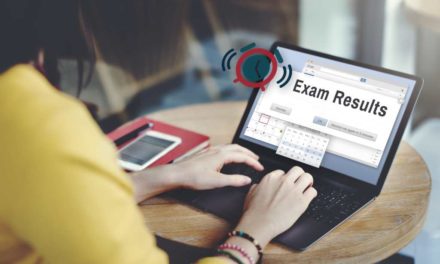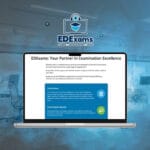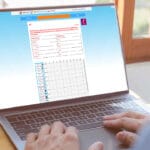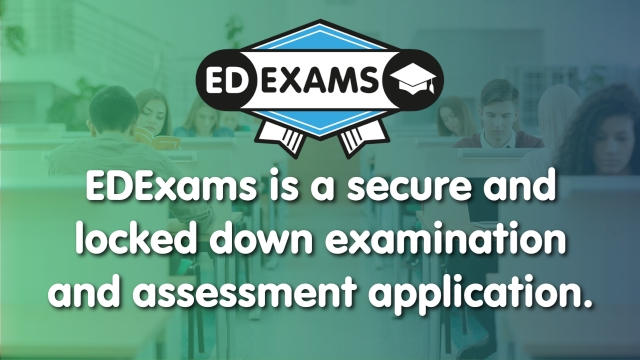The education landscape has dramatically shifted over recent years with EdTech and online assessment becoming more prominent. The change brings flexibility and a positive direction, but how do we ensure integrity and that no malpractice occurs? Remote proctoring can be an instrumental factor.
What is Remote Proctoring?
Remote proctoring uses technology to monitor students taking exams remotely. It employs various methods to verify identity, detect suspicious behaviour, and prevent cheating. This can include:
- Live proctoring: A human proctor observes the student via webcam and screen sharing.
- Recorded proctoring: The exam session is recorded and reviewed later by a proctor.
- Automated proctoring: Software uses AI to flag suspicious activity, such as multiple faces, unusual eye movements, or attempts to access unauthorised resources.
Why is Remote Proctoring Important?
Remote proctoring is crucial for a variety of reasons. Ultimately, the main focus is to ensure fairness so all candidates have equal access to examinations allowing skills and knowledge to be demonstrated without unfair advantages.
In addition, remote proctoring enables assessors to provide accurate accounts and reliable evidence of a candidate’s performance. This helps build trust and credibility for certifications and qualifications obtained.
Benefits of Remote Proctoring:
- Increased Accessibility: Candidates can take exams from anywhere with an internet connection, removing geographical barriers.
- Flexibility: Exams can be scheduled at convenient times, accommodating different time zones and personal schedules.
- Cost-effectiveness: It can be more affordable than traditional proctoring methods, which require physical exam centres and on-site personnel.
- Reduced Malpractice: Candidates could be less inclined to engage in malpractice with the knowledge they are being monitored and recorded.
- Improved Security: Advanced proctoring software can detect sophisticated cheating attempts, ensuring a higher level of exam security.
Addressing Concerns:
While remote proctoring offers significant benefits, it’s important to address potential concerns:
- Privacy: Institutions must choose reputable proctoring services with robust privacy policies to protect candidate data.
- Technical Issues: Reliable internet connectivity is crucial, and technical support should be readily available to assist candidates.
- Accessibility: Remote proctoring can be beneficial, but candidates with special educational needs or diverse requirements must be considered.
The Future of Remote Proctoring:
The online learning and examination sector is dynamic and ever-changing. However, we must consider the impact remote proctoring can have now and in the future. With the rise of AI and solutions increasing flexibility, we can see remote proctoring becoming a massive player when it comes to monitoring examinations.
Try EDExams
EDExams is a perfect online examination solution for any business, awarding body, certification provider or anyone looking for a solution.
EDExams includes robust remote proctoring methods providing a secure and trusted online examination process. EDExams proctoring allows your exams, assessments and tests to take place securely and innovatively with our live or automated and secure proctoring service.
Exams can be taken anywhere at any time! EDExams includes a locked-down application and is ready to support you with your online exam delivery. To book a demo call 01909 384090, email mail@edexams.com or enquire for a free online demonstration here.











